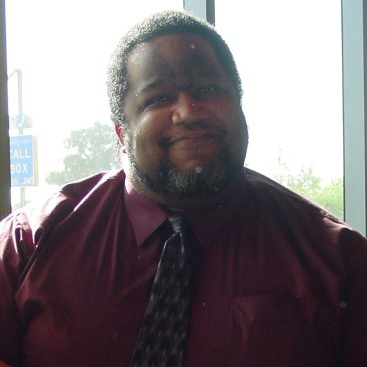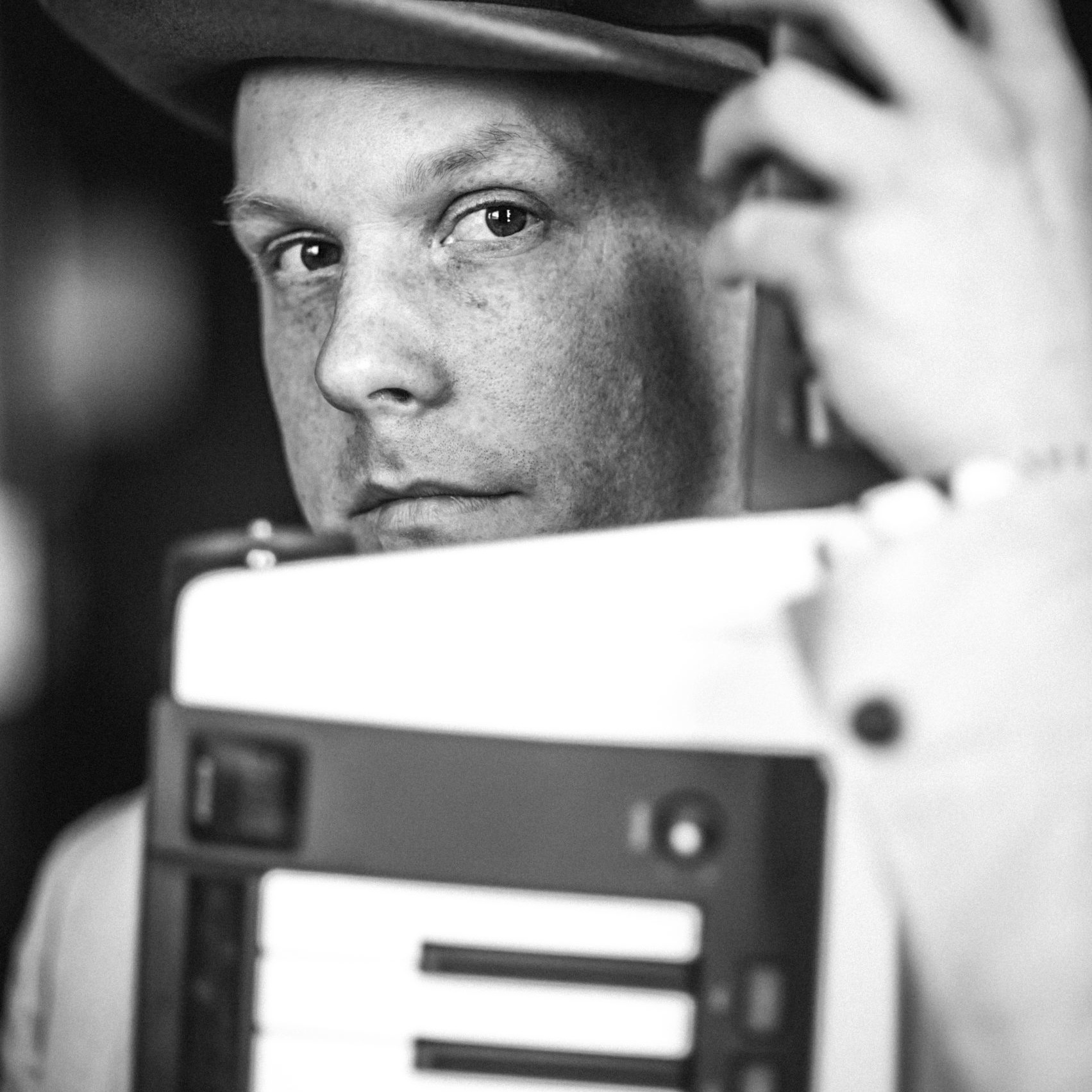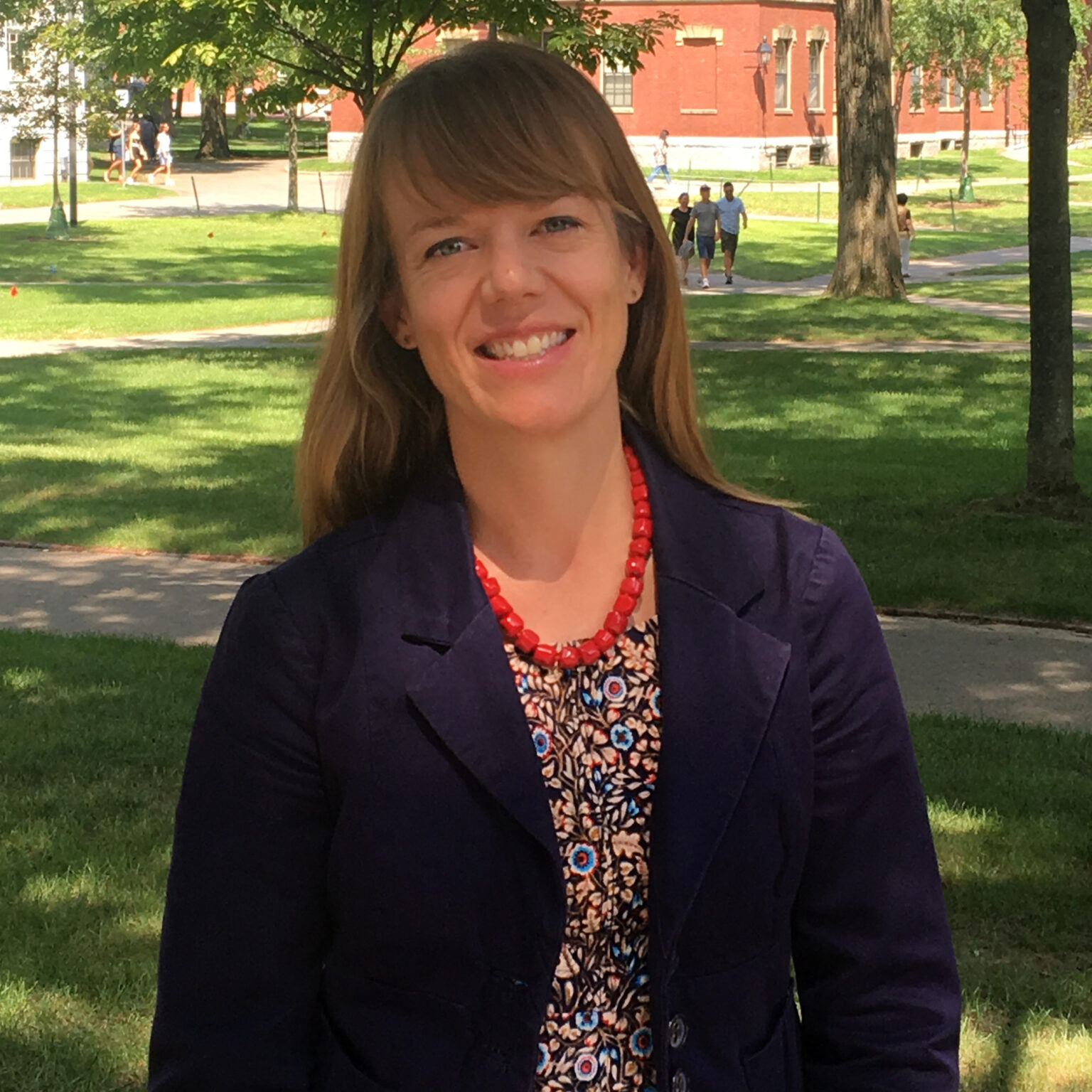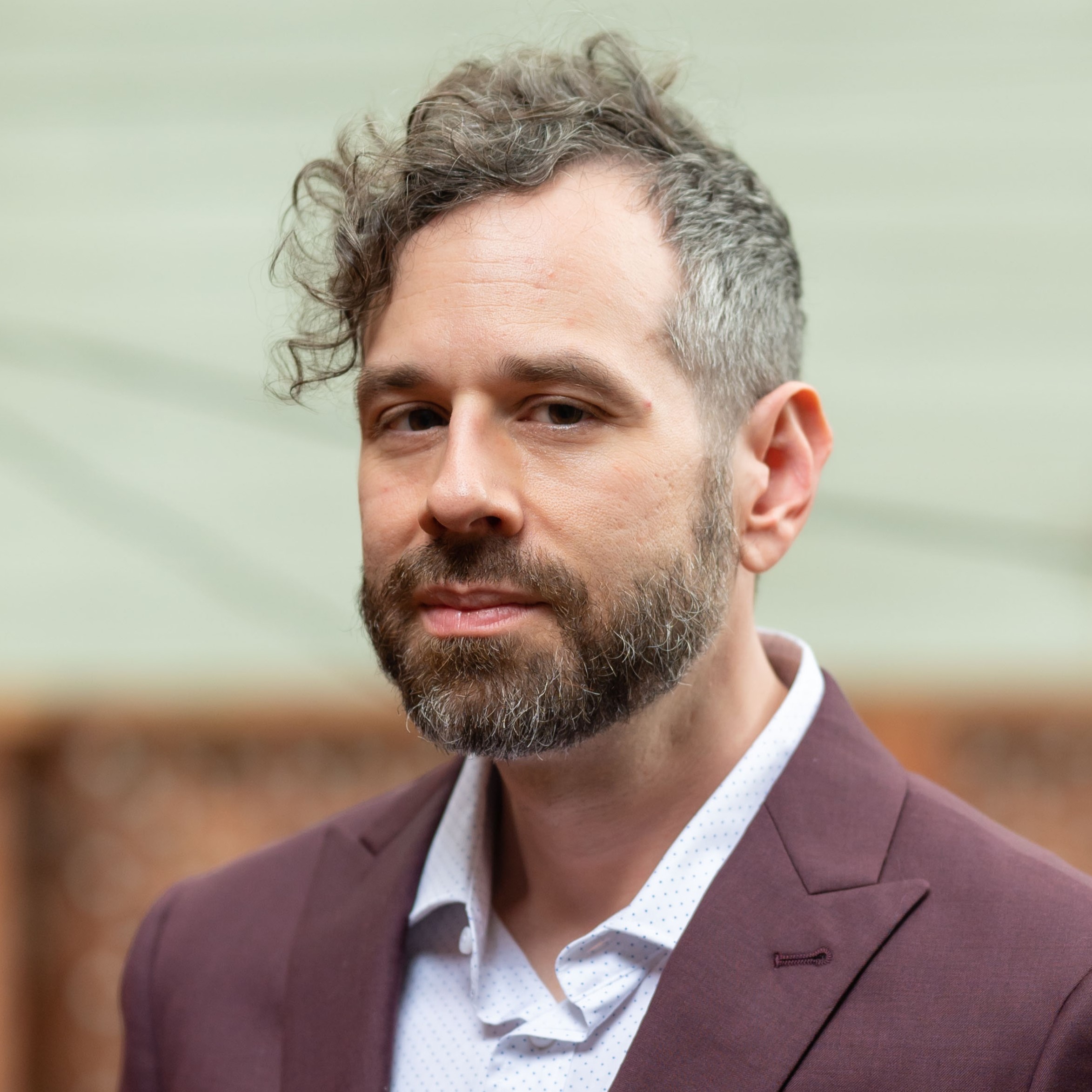Chris Bournea
Chris Bournea
Romance 1600 Presentation
Romance 1600 Live
Sheila E. as Bandleader and Feminist Icon
I’ll present highlights from the Sheila E.: Live Romance 1600 concert video and discuss how the work showcases her as a bandleader in the tradition of her renowned father and uncles, Pete and Coke Escovedo. I’ll also analyze how the concert exemplifies her trailblazing career as one of the few high-profile female singer-percussionists in the industry.
Chris Bournea (bor-NAY) is a writer and filmmaker based in Columbus, Ohio. He directed the documentary “Lady Wrestler: The Amazing, Untold Story of African-American Women in the Ring.” The documentary chronicles the accomplishments of trailblazing African-American women who integrated professional wrestling in the 1950s and ‘60s, such as Babs Wingo, Ethel Johnson, Marva Scott, Ramona Isbell and Kathleen Wimbley.
Bournea wrote and directed the feature film “Things Are Tough All Over,” a drama about a Chicago family struggling through the Great Recession of 2008. The movie will be released in 2025.
Bournea co-wrote the nonfiction book “All Jokes Aside,” which chronicles the famous Chicago comedy club of the same name. The club served as a star factory in the 1990s, launching the careers of famous comedians such as Ohioans Dave Chappelle and Steve Harvey, Mo’Nique, Chris Rock, Cedric the Entertainer, D.L. Hughley, and many others.
Bournea is the author of the fiction series “The Chloe Chronicles,” about a young woman of color making her way in the cutthroat entertainment industry. He also wrote and directed the play “The Springtime of Our Lives,” a contemporary, urban take on Shakespeare’s “Romeo & Juliet.”
Bournea is also a journalist who is currently a writer and editor for Ohio State News, The Ohio State University’s news site.
Marc Wiggins
Marc Wiggins
The Family Presentation
Time Runs Out... Family Steps Up
Digital media has provided many of us the opportunity to research and relive the past, particularly from 1983 into 1985. In 1983, the Purple Machine was in full stride. Prince’s 1999, The Time’s What Time Is It? and Vanity 6’s self-titled album were all hits and selling well. The Triple Threat Tour was scorching across the nation, powered in large part by The Time constantly upstaging Prince on the tour… I was there. The Rolling Stone magazine with the cover showing Prince and Vanity was the talk of the industry, all was good in the land of Purple…until it wasn’t. Defections, disagreements, firings and hirings, circumstances that led to the creation of… The Family. Like a comet, they burned hot and flamed out too soon…or did they?
Presently, I’m a Vice-Chair for the ABA Recording and Performing Arts division, a member of the Recording Academy San Francisco Chapter, a member of the Schwartz-Levi Chapter of the American Inns of Court, and a member of the United States Supreme Court Bar Association. The bulk of my law practice is in music industry transactions, which I LOVE. I’ll be renewing my NBA agent credentials in October. And I have applied to teach a music law course at King Hall, the UC Davis Law School.
Before starting college and after dropping out of high school, I was a roadie in the Bay Area, and among the acts I worked with were Journey and Santana. Music is “my thing” and other than a possible run for the judicial bench, I don’t see myself in any other areas of law.
When I’m not doing my thing in the legal world, I can be found dining at various Michelin-star restaurants or listening to my audiophile sound system and reading a music biography or a comic book. I’m a complex cat…
Kamilah Cummings
Kamilah Cummings
ATWIAD #2 Presentation
Colorful People
Reclaiming the Psychedelic Soul Roots of Prince’s Around the World in a Day
Following Purple Rain, Prince’s Around the World in a Day album marked what appeared to be a radical sonic and thematic departure. Many critics hastily labeled it “Prince’s Beatles album,” continuing the practice of crediting musical innovation to whiteness. This presentation challenges this persistent mischaracterization and instead situates the album within the lineage of psychedelic soul music. By reframing the album as a continuation of the innovative work of artists such as Charles Stepney, Norman Whitfield, Funkadelic, The Chambers Brothers, and Sly and the Family Stone, this discussion highlights the ways in which Prince was not imitating white psychedelic rock but rather expanding upon the work of his Black musical influences, who have been historically overlooked.
Blending funk, soul, blues, gospel, and rock with sophisticated orchestration and social commentary—both overt and coded, Around the World in a Day is more musically varied and thematically complex than the Beatles’ Sgt. Pepper’s Lonely Hearts Band album, which is frequently and inaccurately positioned as its primary influence—despite Prince, himself, stating that it was not. On this album, Prince, like his Black predecessors, used psychedelia as a space for cultural critique, escapism, and sonic experimentation. This analysis firmly positions Around the World in a Day not as a departure from Black musical tradition, but as a progression of it—an affirmation of its limitlessness.
Kamilah Cummings is a writer, editor, and visiting senior lecturer at DePaul University in Chicago. She has presented on Prince at Purple Reign, the first academic Prince conference (University of Salford, UK), and polished solid Prince symposia at New York University, Spelman College, and online. She has also presented on Prince at The 2021 Pop Convergence (PopCon).
Her work on Prince has been published in the Howard Journal of Communications, the Journal of Popular Music Studies, AMP: American Music Perspectives, and Prince and Popular Music: Critical Perspectives on an Interdisciplinary Life (Bloomsbury). She has also created the course, Prince: A New Breed Leader.
A House music researcher as well, she created the course The House Chicago Built, has presented on House music at Black Portraiture[s] IV (Harvard University), and appears as a featured speaker in the documentary The Woodstock of House. She is passionate about exploring the intersections of race and identity in media and pop culture, with a particular focus on centering Blackness in the narratives of Black people.
Rhonda Nicole
Rhonda Nicole
The Family Presentation
Echoing Like a Volcano
The Fantastic Love Story That Is “The Screams of Passion”
In this gorgeously poetic masterpiece, one of the finest from his oeuvre, Prince entices us to embark on the romantic journey of a lifetime in the song “The Screams of Passion.” Animated by the palpable chemistry between The Family’s lead vocalists St. Paul and Susannah, the third track from the band’s eponymous debut blends Prince’s signature funk with sumptuous lyrics that lead us down the long, twisting corridors of intimacy on the way to sexual ecstasy.
Come, follow me…
Rhonda Nicole is a Los Angeles-based independent singer/songwriter, music journalist, and social and digital marketing executive whose life officially turned purple in 1984. As the managing editor for the now-defunct SoulTrain.com, she interviewed a number of Prince-related artists including Jill Jones, Taja Sevelle, fDeluxe, Liv Warfield, and Andy Allo. Blending her passion for music and expertise in digital marketing, Rhonda Nicole developed and led social media strategy for the National Museum of African American Music in Nashville. She’s a proud member of the Los Angeles chapter of the Recording Academy where she serves on the Advocacy Committee; Songwriters of North America (SONA); and Alpha Kappa Alpha Sorority, Inc. Rhonda Nicole’s 2010 debut EP, ‘Nuda Veritas’, and self-produced releases ‘Radical Ecstasy’, ‘Home’, ‘LOVER’, her 2024 single ”Love Letters,” and her newest single “Brand New Thing” are available on Bandcamp and all streaming platforms.
Jonathan H. Harwell

Jonathan H. Harwell
ATWIAD #2 presentation
Spiritual / Global Journeys & Countercultural Resistance
"Around the World in a Day" as Cosmological Invitation
When Prince & the Revolution released “Around the World in a Day” as the opening title track of their 1985 album, they invited listeners into a sonic landscape that transcended the evolving Minneapolis sound of Prince’s earlier work. This presentation examines this pivotal moment in Prince’s artistry, where his thematic focus expanded from earlier personal, romantic, and political themes to embrace spiritual exploration and global consciousness while maintaining a powerful countercultural stance.
Focusing on the title track as a gateway to the album’s world, I explore how Prince interwove traditional African cosmological concepts—particularly the fluidity between material and spiritual realms—creating a musical experience that functioned simultaneously as artistic expression and resistance. “Around the World in a Day” marks a critical turning point that introduced spiritual pilgrimage themes that would become hallmarks of Prince’s later catalog.
Jonathan H. Harwell is Associate Director for Collection & Resource Services at Georgia College & State University’s Russell Library, and was previously a librarian at Rollins College, Georgia Southern University, the University of Alabama at Birmingham, and Berry College. He holds an MLIS from The University of Alabama, an MA in Social Science from Georgia Southern University, and a BA in English from the University of Southern Mississippi; and is currently working on an EdD in Educational Leadership from Georgia Southern University. In his former life, he was a teacher in Albania for two years. His passions include researching the cultural history of Quakers in the American South. He is co-editor of Theology and Prince (2020) and Theology and Protest Music (2023) from Lexington Books/Fortress Academic, and a DJ on WGUR-FM in Milledgeville, Georgia.
Chris Johnson

Chris Johnson
ATWIAD #2 presentation
Ascending “The Ladder”
Prince’s Song Through Maslow’s Lens
In this presentation, I analyze Prince’s song “The Ladder” within the framework of psychologist Abraham Maslow’s hierarchy of needs, a theory that categorizes human motivation into a progression of stages: physiological, safety, love/belonging, esteem, self-actualization, and transcendence. Prince’s lyrics use rich spiritual imagery and universal metaphors to depict a journey of striving for fulfillment. Beginning with the foundational need for existential security and progressing toward community, personal growth, and spiritual awakening, “The Ladder” mirrors Maslow’s progression of needs. Ultimately, the song portrays transcendence as the apex of human aspiration, aligning deeply with Maslow’s later work. This analysis not only explores Prince’s artistic genius but also invites listeners to reflect on their own psychological and spiritual journeys.
Chris Johnson is an independent researcher from Le Center, Minnesota. He is also a podcaster, writer, and part-time tutor. Chris earned his Bachelor of Arts degree in French and English from Augustana University. As an undergrad, he was nominated by professors to Pi Delta Phi, The National French Honor Society, and to Sigma Tau Delta, The International English Honor Society.
His research interests lie in popular culture, the history of American music, French literature and culture, and advocacy for disability rights. He has been a fan of Minneapolis musician, Prince Rogers Nelson, from the age of three. Chris hosts a podcast, the Purple Knights Podcast, a round-table discussion on Prince and related artists and people; new episodes are posted online every few months.
Adam Rudegeair
Adam Rudegeair
The Family Presentation
All the Flowers
Variations on Nothing Compares 2 U
The song “Nothing Compares 2 U” has undergone significant re-invention with each iteration. It was first released on the 1985 eponymous Family album in a sparse arrangement, which heavily featured the lush string orchestrations of Clare Fischer.
This presentation will compare and contrast four significant versions of the iconic song (The Family 1985, Sinead O’Connor 1990, Prince and Rosie Gaines 1993 Live Version, and the original Prince demo), with a discussion of the effect of changes in instrumentation, chords, and key.
Adam Rudegeair is a prolific composer, performer, filmmaker, and educator based in Melbourne, Australia. His music is rooted in jazz and funk, with significant influences from the sounds of New Orleans and Minneapolis. His current projects as a leader include Lake Minnetonka, The Bowie Project, and Retconned Bond.
In 2021 Adam completed his Masters studies at Box Hill Institute with the thesis, ‘Strange Changes: Re-imagining Jazz Structures for Improvisation Utilising the Compositions of David Bowie’.
Since 2008 Adam has presented the weekly jazz radio program Black Wax on PBS 106.7FM.
Karen Turman
Karen Turman
ATWIAD #1 Presentation
Something About the Clouds
Exploring the Iconography of Clouds in the Prince Universe
A year after his famous white “cloud” guitar appeared in Purple Rain (1984), Prince wore a bespoke sky-blue silk suit hand-painted with clouds for the “Raspberry Beret” music video. The clouds continued onto the set of the video shoot as well as the album cover for Around the World in a Day, both of which depict a colorful, diverse, and inclusive utopic world with a psychedelic dreamlike atmosphere. The motif of clouds would appear throughout his life in his clothing, instruments, lyrics, studio space, films, and videos. In his memoirs, Prince explains his fascination with clouds as a young boy: “I loved 2 play outside and felt completely free with no ceiling. Clouds seemed like home 2 me” (The Beautiful Ones 117). This idea of freedom, or living with no ceiling, was one of his key philosophies and he would continue to reject any societally imposed limitations on his artistic expression throughout his life. Grounded in a close analysis of the iconic suit worn in the “Raspberry Beret” video, this talk will explore the significance of clouds as an expression of freedom for Prince.
Karen Turman is a Preceptor of French in the Department of Romance Languages and Literatures at Harvard University. She earned her B.A. (2001) at the University of Minnesota, and her M.A. (2008) and Ph.D. (2013) in French Literature with an emphasis in Applied Linguistics at the University of California, Santa Barbara. Her interdisciplinary research interests include 19th-century Bohemian Paris, music, and dance during the Jazz Age, fashion and popular culture studies, community engagement scholarship, indigenous artists and activists in the Francophone Pacific, and topics of social justice and sustainability in the language classroom. Dr. Turman’s publications on Prince include an essay on Josephine Baker, Claude McKay, and Prince entitled “Banana Skirts and Cherry Moons: Utopic French Myths in Prince’s Under the Cherry Moon,” and “Prettyman in the Mirror: Dandyism in Prince’s Minneapolis.” She is currently working on a monograph on Prince and fashion.
Zachary Hoskins
Zachary Hoskins
ATWIAD Presentation
The Influence Wasn’t the Beatles
Around the World in a Day, “Classic Rock,” and the Politics of Musical Legacy
When Prince released Around the World in a Day as the left-field followup to his transmedia blockbuster Purple Rain in April 1985, music critics widely drew connections between the artist’s new sound and 1960s psychedelic rock–in particular, the Beatles’ epochal 1967 “concept album” Sgt. Pepper’s Lonely Hearts Club Band. So pervasive were these comparisons, in fact, that Prince would single them out for dismissal in his oft-cited September 1985 interview with Neal Karlen for Rolling Stone, stating, “The influence wasn’t the Beatles. They were great for what they did, but I don’t know how that would hang today.” As ever with Prince, however, the reality was a little more complex; and reading between the lines of various statements from the artist and his collaborators–as well as many of the artistic choices he made before, during, and after his mid-’80s psychedelic era–reveals a nuanced and dialectical relationship between Prince as a self-conscious standard-bearer for the Black musical tradition, and the Beatles as exemplars of the predominantly White “classic rock” canon being actively shaped through critical and commercial discourses in the 1980s.
Zachary Hoskins is the author of Dance / Music / Sex / Romance, a song-by-song blog examining the music of Prince in chronological order. His essay, “Rude Boy: Prince as Black New Waver,” was published in a special issue of Spectrum, A Journal on Black Men (2020), and his presentation from the Prince #1plus1plus1is3 virtual symposium (2021), “I Wish We All Were Nude: Prince’s Controversy ‘Shower Poster’ as Aesthetic Linchpin and Artifact,” was published in the Journal of Popular Music Studies. His presentation from the #EroticCity40 symposium (2024), “No One Wants to Talk about Apollonia 6,” will also appear in a forthcoming issue of JPMS. Zach has presented and appeared on roundtables at other @polishedsolid symposia, #Come30 (2024), #TripleThreat40 (2023), #SexyMF30 (2022), and #DM40GB30 (2020), as well as the University of Minnesota’s Prince from Minneapolis symposium (2018). He holds an M.A. in Media Arts from the University of Arizona and B.A.’s in Film & Video Studies and Creative Writing & Literature from the University of Michigan.
Zaheer Ali
Zaheer Ali
ATWIAD Roundtable
ATWIAD Presentation
Teacher, Why Won't Jimmy Pledge Allegiance?
Prince as Citizen
On August 23, 1984, at the Republican National Convention nominating Ronald Reagan for re-election to his second term as President, Ray Charles closed out the ceremonies with his soulful rendition of “America the Beautiful,” a version that he had made popular through his 1972 release A Message from the People. The original song, long celebrated as a popular alternative to the American national anthem, “The Star-Spangled Banner,” celebrates American greatness, prosperity, and Providential favor—all themes Reagan effectively exploited during his presidency. Less than a year later, Prince released the album Around the World in a Day, featuring the song “America,” which borrowed both a musical and lyrical phrase from “America the Beautiful”’s chorus: “America, America, God shed His grace on thee.” However, in Prince’s “America,” the soaring chorus was transgressively rendered with a growling lead guitar, verses warned of the perils of inequality, and the chorus includes both a prayer and a warning: “Keep your children free.” In an almost Hendrixian way, Prince’s interpolation of “America the Beautiful” had turned a patriot’s anthem into a citizen’s jeremiad against the perils of Reagan-era policies, with a call to government and society to live up to its democratic ideals, or suffer a divine and political chastisement. To date, “America” was Prince’s most explicit, but not only, critique of state power. Beginning with a close examination of “America,” this presentation seeks to draw out Prince’s often overlooked political concerns during the first decade of his career, and challenges us to appreciate Prince’s early artistic voice as citizen.
Zaheer Ali is a historian and scholar of 20th-century United States and African-American history. He is currently the inaugural executive director of the Lawrenceville School’s Hutchins Institute for Social Justice. As an adjunct lecturer at New York University, he taught a Spring 2017 course titled, “Prince: Sign of the Times,” an examination of Prince’s life and legacy in American history and culture. He’s presented his scholarship on Prince at conferences at Yale, Salford University in Manchester, England, and the University of Minnesota; and is currently developing the Prince Syllabus, exploring the life and work of Prince as a catalyst for social change.







